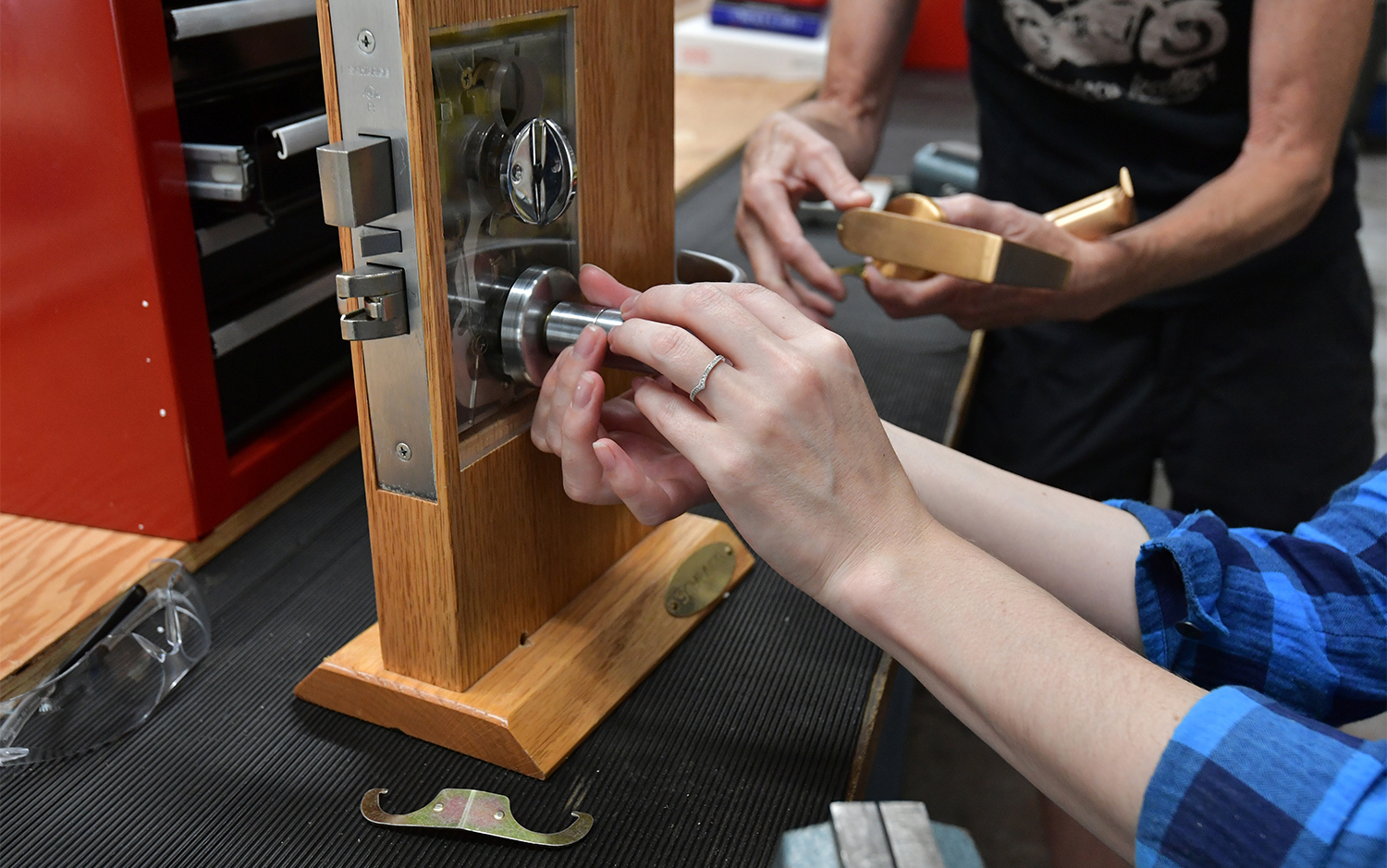
A trained trade, locksmithing calls for accuracy, knowledge, and dedication. Maintaining the security of homes, companies, and automobiles depends on locksmiths in great part. Locksmiths must become experts in both conventional knowledge and new technologies as they develop. You have to grow particular skills if you wish to thrive in this field. These are the key abilities required to be a locksmith nowadays.
1. Familiarity with Various Lock Systems
Technical knowledge is the basis of locksmithing. A locksmith needs to know different lock systems to provide security in residential, commercial, and automotive environments. These include conventional mechanical locks like pin tumbler locks, as well as sophisticated systems like electronic and smart locks. It is necessary to have a good understanding of their internal workings for proper installation, repair, and maintenance.
2. Proficiency with Locksmith Tools
Locksmiths utilize a range of specialized tools to carry out their operations effectively. Some of the necessary tools include drills, tension wrenches, key cutters, lock picks, and decoding tools. Each tool must be used appropriately, as locksmithing calls for accuracy in cutting keys, choosing locks, or breaking down intricate lock mechanisms.
3. Value of Tool Maintenance
Aside from having the skills in using tools, proper maintenance is equally crucial. Properly maintained tools are more efficient and can last longer. Calibrated, clean, and sharp tools facilitate smooth operations and improve work productivity.
4. Adjusting to Electronic Security Systems
With the advent of new security technology, locksmiths also need to be proficient in dealing with electronic security systems. This involves programming key fobs, dealing with computerized keypads, and operating biometric locks. Keeping abreast of technological developments in the locksmithing field is essential to remaining competitive and providing high-quality services.
5. Analytical Thinking and Solving Problems
Each day, locksmiths face new challenges, so problem-solving is an essential skill for the job. The ALOA offers continuing education for locksmiths to stay updated with industry developments. No two calls are ever alike—one day you may be asked to open a door, and the next day you may be installing a high-security system. This ever-changing diversity demands flexibility, technical skills, and a sharp sense of troubleshooting and fixing problems effectively.
Every lockout calls for rapid response and cool headiness. You have to examine the problem and quickly develop the best answer. A good locksmith understands damage assessment, root cause identification, and appropriate remedy application. For example, you have to determine whether a lock isn’t turning from misalignment, wear and tear, or something else.
One must be flexible and creative as well. You might operate in strange surroundings, terrible weather, or confined quarters. Under duress, you do better if you have a clear head and use creativity. Customers value a locksmith able to competently and quickly fix problems.
6. Patience and Attention to Detail
Locksmithing is a delicate employment. Every lock consists of little parts that have to line exactly. The lock can become unusable even from a little error. Thus, one of the most important abilities is one of detail as it determines everything.
Precision counts both while cutting keys and building locks. A locksmith has to verify their work to guarantee accuracy twice-through. Long term, this saves time and helps to avoid difficulties.
Precision and patience coexist peacefully. Particularly if they are ancient, complicated, or damaged, certain locks take longer to unlock or fix. Rushing can result in errors or perhaps property damage. Spending time to do things correctly demonstrates professionalism and concern.
Locksmiths’ safety and security inspire clients. Accurate, meticulous work guarantees client satisfaction and strengthens reputation.
7. Customer Service and Transmission of Ideas
A locksmith deals with people as much as with locks. Strong communication skills enable you to properly explain to clients’ services, expenses, and procedures. Simplifying material helps many clients to trust as many of them might not grasp the technical aspects.
You will frequently run across customers in trying circumstances, such as being locked out of their house or automobile. Showing the client empathy and understanding produces a good experience and enables them to relax. Good, courteous service has a lasting effect and promotes return business.
Dependability is key in locksmithing, and the ALOA offers continuing education for locksmiths to maintain high standards. Building a loyal client base requires punctuality, keeping customers informed, and delivering on promised services. Additionally, clear communication with suppliers and team members is essential. Whether it’s scheduling appointments or ordering parts, effective communication ensures smooth operations and successful job completion.
